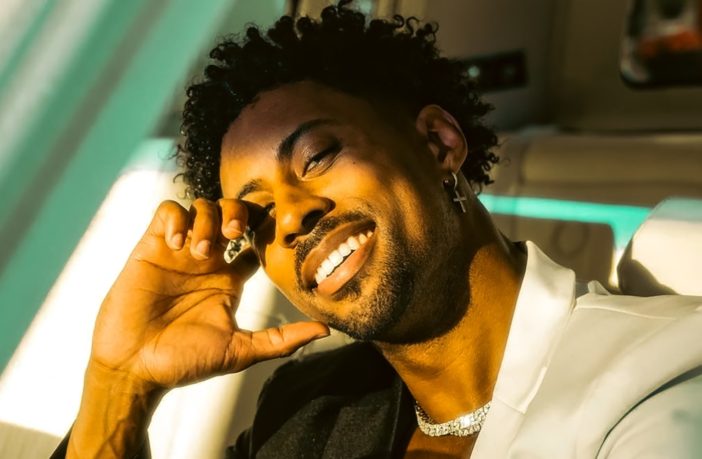A well-versed artist athlete known for his innovative portraits, Jon Moody uses his artistic platform to bring awareness to social and economic causes and worldly issues. An alum of the Bravo series Southern Charm New Orleans, Moody’s work has been commissioned by celebrities and was featured in the White House. His artistic renderings have appeared on the sets of the hit TV series Empire and Star.
For EBONY FWD, Moody is showcasing Free, a piece that graced the cover of EBONY, symbolizing liberation and rebirth, which encapsulates transformation and provokes reflection. It was chosen for its thematic resonance with Free. Moody is also featuring No Ordinary Love, a work that melds the soul with the essence of identity, and Broken, a personal favorite of the artist, which delves into the theme of overexertion and its impacts.
EBONY: When and how did you discover your love of art?
Jon Moody: My journey in art is marked by numerous defining moments, but one particularly stands out from my middle school years. During this time, I participated in Black history art contests, even competing against high school students. Winning these contests each year from eighth through 12th grade was a pivotal affirmation of my innate talent and set the stage for my artistic endeavors.
How do you describe your artistic medium?
I would characterize my artistic medium as a fusion of deep-rooted soulfulness intertwined with the complexities of contemporary issues. It’s a blend that seeks to resonate emotionally while reflecting the times.
What messages do you impart through your art?
My art is a conduit for challenging the pressing issues of our era. It goes beyond mere aesthetics; it’s crafted to spark thought and ignite conversations about the collective challenges we face as a society.
How are you moving Black art forward? How can we support and nurture Black artists?
I advance Black art by embracing my identity as an unapologetic Black artist, continuously evolving and sharing my journey and insights with other Black artists. The key to supporting and nurturing Black artists is inclusion. This means commissioning their work, collaborating with them and ensuring they are a fundamental part of the artistic conversation.



